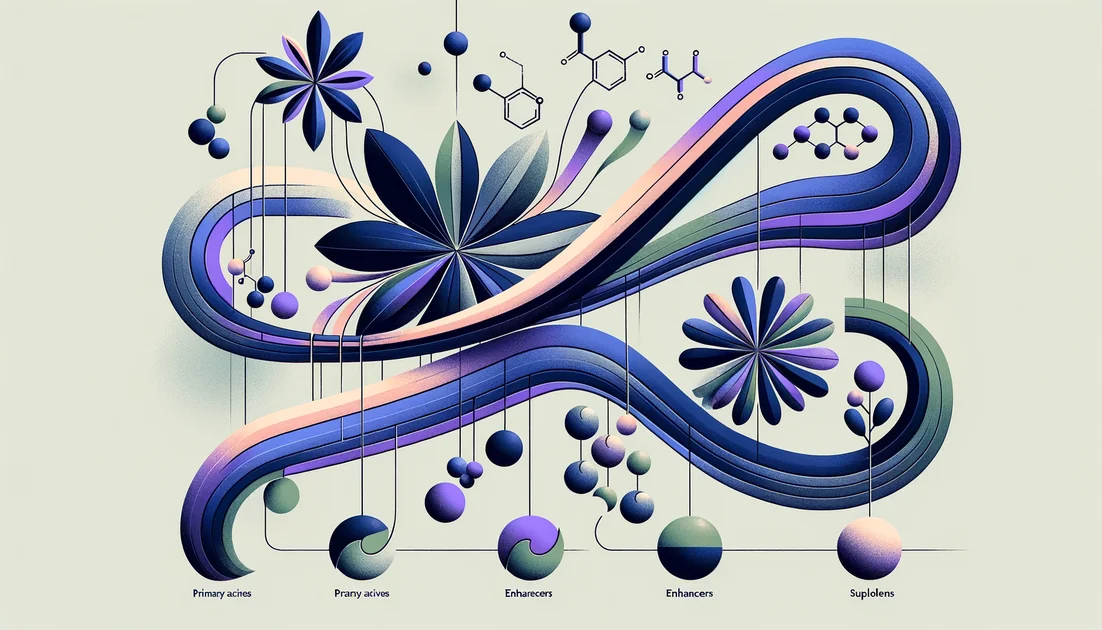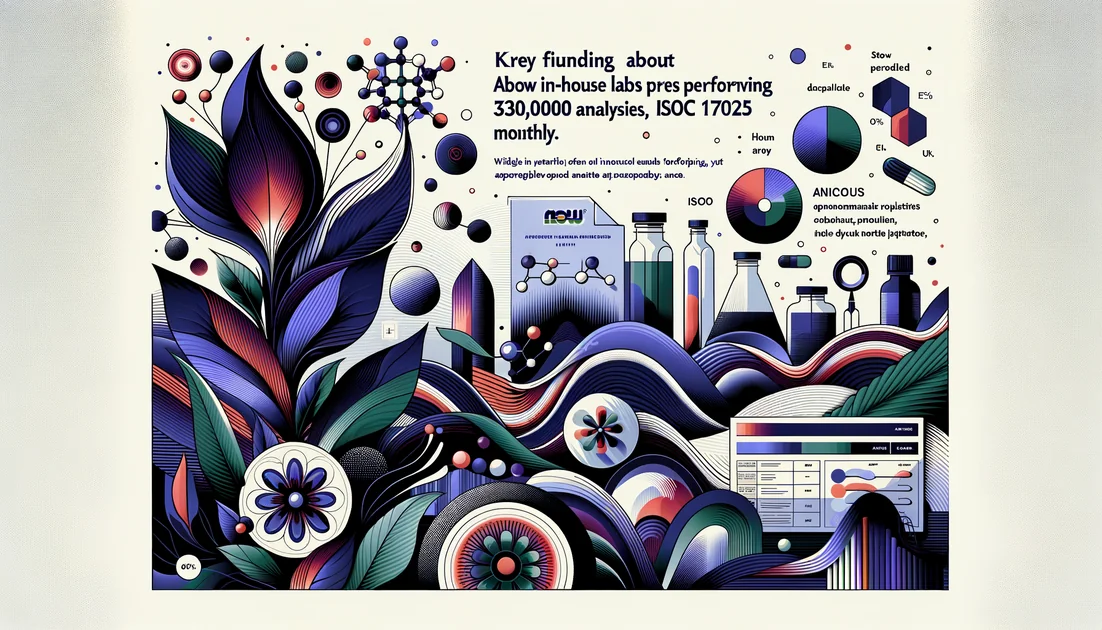
Bacopa Monnieri + Citicoline
Memory Stack With Real Clinical Data
Quick Summary
- •Dual-core, theoretical synergy: both work on their own
- •Together looks additive with plausible complementarity, but no direct human A+B head-to-head proof yet.
The Verdict
Dual Core- •Bacopa + Citicoline is a biologically neat pairing: one calms and preserves acetylcholine signals
- •The other fuels and supports the hardware. Real-world feel is often 'calm, clearer focus,' but there's no head-to-head proof that the duo outperforms either solo. Treat it as a thoughtful additive combo, not proven synergy.
Essential Core: Bacopa Monnieri, Citicoline
Beneficial Additions: Omega-3 DHA, Uridine monophosphate
Optional Additions: L-theanine
The Synergy Hypothesis
Target the same memory messenger (acetylcholine) from two sides—production and preservation—while supporting the 'wiring' (phospholipid membranes) and reducing stress noise. This should translate to clearer focus now and better memory over weeks.
How the system works →
Citicoline is split into cytidine and choline, which your brain uses both to rebuild phosphatidylcholine-rich membranes and to make acetylcholine—the neurotransmitter that powers attention and memory. Bacopa tends to quiet the stress system and slows the enzyme that clears acetylcholine (acetylcholinesterase), so the messages last longer. Add the two: cleaner signal generation plus less signal loss, riding on healthier neuron membranes. That's the theory—and it's biologically coherent—but it hasn't been proven superior to taking either one alone in head-to-head human trials.
Solo vs Combination
Solo Bacopa is a slow-bloom memory helper with a calmer feel; solo Citicoline tends to sharpen attention and processing within weeks. Together, most users aim for 'clearer, calmer focus now + better recall later.' Because there's no A+B vs A or B trial, expect additive (1+1=2) more than multiplicative (1+1=3). If you're sensitive to cholinergic effects, start with one and add the other cautiously.
The Ingredients
Bacopa Monnieri +
primary active• beneficial
Acts like a 'brake tuner' for the brain: calms the stress alarm and slows acetylcholine breakdown so memory signals stick better.
Works Alone?
Yes
Needs combination
In This Combo
300 mg/day standardized extract (e.g., 24–55% bacosides)
(dose-sparing effect)
Cost: $12–25/month (standardized extract; branded extracts can cost more)
What if I skip this? (moderate impact, combo survives)
Citicoline +
primary active• beneficial
Works like 'fuel + repair kit': supplies choline to make acetylcholine and supports phospholipid membranes that insulate and signal in neurons.
Works Alone?
Yes
Needs combination
- •Improved attention/psychomotor speed in healthy adolescents and middle-aged women
- •Improved episodic memory in older adults with AAMI when used alone.
In This Combo
250–500 mg/day
(dose-sparing effect)
Cost: $25–45/month (dose-dependent)
What if I skip this? (moderate impact, combo survives)
How They Work Together
Bacopa Monnieri + Citicoline
dual pathway
- •They boost the same message system (acetylcholine) from two sides—Citicoline helps make more of it
- •Bacopa helps it stick around longer.
Citicoline donates choline and supports the Kennedy pathway to make phosphatidylcholine and acetylcholine; Bacopa lowers acetylcholinesterase activity and tamps down stress, so acetylcholine signals aren't drowned out.
- •Unknown
- •Plausible but unquantified in humans
Citicoline → ACh ↑; Bacopa ⤓ AChE → ACh ↑
One turns on the faucet; the other tightens the drain.
Bacopa Monnieri + Citicoline
mitigates side effect
Bacopa can be mildly sedating in some; citicoline tends to enhance front-of-brain attention circuits and psychomotor speed, which may balance mood/energy.
Bacopa ↓ sleepiness; Citicoline ↑ alertness → steadier focus
Think cruise control (Bacopa) plus a gentle wake-up light (Citicoline).
Bacopa Monnieri + Citicoline
competitive
High acetylcholine tone from stacking choline donors with AChE inhibition can feel 'too heavy'—users sometimes report fatigue or low drive if doses are high.
- •Individual variability
- •Watch dose
Citicoline ↑ ACh + Bacopa ↓ ACh breakdown → cholinergic overload (in some)
Gas pedal pressed while parking brake is partly on—engine bogs.
How the system works in detail →
Citicoline is split into cytidine and choline, which your brain uses both to rebuild phosphatidylcholine-rich membranes and to make acetylcholine—the neurotransmitter that powers attention and memory. Bacopa tends to quiet the stress system and slows the enzyme that clears acetylcholine (acetylcholinesterase), so the messages last longer. Add the two: cleaner signal generation plus less signal loss, riding on healthier neuron membranes. That's the theory—and it's biologically coherent—but it hasn't been proven superior to taking either one alone in head-to-head human trials.
How to Take This Combination
Timing Protocol
- •Citicoline often feels more alerting
- •Bacopa can be calming/sedating and may upset the stomach if taken on an empty stomach, so pairing with food or evening dosing helps tolerability.
Doses
Bacopa Monnieri: 300 mg/day standardized extract (e.g., 24–55% bacosides)
Citicoline: 250–500 mg/day
⚠️ Order matters
- 1.
Citicoline raises choline supply for acetylcholine and membrane repair
- 2.
Bacopa slows acetylcholine breakdown and calms stress reactivity
- 3.
Together aim for clearer signals (attention) and better 'save to memory'
Can add:Omega-3 DHA (membrane support), Uridine monophosphate (with DHA + choline for membrane synthesis), L-theanine (extra calm focus; optional)
Should avoid:Stacking multiple choline donors (e.g., high-dose alpha-GPC plus citicoline), Huperzine A or other strong AChE inhibitors at the same time, Anticholinergic drugs (opposite mechanism)
The Evidence
- •Each compound has human data on its own (Bacopa for memory after weeks
- •Citicoline for attention/episodic memory). Together: only theoretical or preclinical hints—no A+B vs A vs B human trials.
0 combination studies — no direct combo studies 0 pharmacokinetic, 0 clinical, 2 mechanistic
View key study →
No human RCT of Bacopa + Citicoline together. Preclinical data suggest choline + Bacopa + ashwagandha reduced microglial oxidative stress and improved recognition memory in mice; a 2020 narrative review argued for additive use of Bacopa with citicoline. [4]
- •Plausibly additive for attention (citicoline) plus memory/stress-calming (bacopa)
- •Synergy not established.
Read full technical summary →
What we can say with confidence: Bacopa (standardized extract) can improve some aspects of memory after weeks, and Citicoline (CDP-choline) can improve attention/psychomotor speed and episodic memory in targeted groups. Mechanistically they meet in the acetylcholine system from different angles—Bacopa tends to reduce ACh breakdown and stress reactivity; Citicoline supplies choline and helps rebuild neuronal membranes—so the pairing is sensible. But we found no randomized trials testing Bacopa+Citicoline together versus each alone; the only combo evidence is preclinical or theoretical. Bottom line: a reasonable, data-informed stack for memory + focus, but call it "promising and additive," not "proven synergy."
Cost
Estimated Monthly Cost
$37–70/month for the pair at typical doses
View breakdown →
Bacopa Monnieri: $12–25/month (standardized extract; branded extracts can cost more)
Citicoline: $25–45/month (dose-dependent)
- •Worth it if you want calm focus plus memory and tolerate both well
- •Otherwise start with whichever maps to your primary goal and add the second only if needed.
Money-saving options
- Bacopa alone ($12–25/month)
- Citicoline alone 250–500 mg ($25–45/month)
Alternative Approaches
Citicoline + DHA + Uridine (Synapse support)
Citicoline 250–500 mg, DHA (omega-3) 500–1000 mg, Uridine monophosphate 100–200 mg
+Backed by mechanistic and animal data for building synaptic membranes; some human signals with related medical nutrition formulas.
−More expensive; less calming than Bacopa; evidence strongest in specific populations.
Choose if:When 'mental energy' and long-term synapse support matter more than acute stress-calming.
Bacopa solo (calm-memory focus)
Bacopa Monnieri 300–450 mg/day (standardized extract)
+Simpler, cheaper; good evidence for memory with consistent use.
−Takes weeks; can be sedating for some; attention gains are less consistent than with citicoline.
Choose if:If you mainly want memory consolidation with a calmer feel and prefer minimal stacks.
Safety Considerations
Bacopa is generally well tolerated but can cause GI upset, increased stool frequency, and mild sedation; it may inhibit CYP1A2/2C9/2C19/3A4 and oppose anticholinergic drugs. Animal work suggests possible thyroid effects; use caution if you have thyroid disease. Citicoline is usually well tolerated (occasional headache, GI upset), and major interactions are uncommon, though dopaminergic modulation is reported in mechanistic literature. Avoid during pregnancy/lactation due to limited data, and introduce only one component at a time if you're sensitive to choline or experience low mood/fatigue on choline donors.
⚠️ Contraindications
- ✗People taking strong anticholinergics (overactive bladder, Parkinson's meds with anticholinergic action) unless supervised. [1]
- ✗Those with uncontrolled thyroid disease (Bacopa caution). [1]
- ✗People highly sensitive to choline donors or who experienced 'cholinergic' side effects previously. [13][14]
- ✗Pregnant or breastfeeding individuals (insufficient safety data for either). [1][13]
Common Misconceptions
- ✗"More choline is always better." In reality, too much cholinergic tone can feel worse.
- ✗"Bacopa works right away." Most memory gains show after weeks, not days.
- ✗"The combo is proven synergistic." There's no A+B vs A vs B human trial yet.
- ✗"Herbal = harmless." Bacopa can interact with meds and cause GI upset/sedation.
Common Questions
Can I take just one of them and still benefit?
How long until I feel something?
What dose should I start with?
Is this safe with my medications?
Any signs I'm taking too much?
Interaction Network Details →
Bacopa Monnieri:Ayurvedic herb that calms stress and helps memory signals last longer.
Citicoline (CDP-choline):Choline donor that fuels acetylcholine and supports neuron membranes.
More acetylcholine:Stronger 'attention and memory' messenger signals.
Less ACh breakdown:Slower cleanup of acetylcholine, so signals last longer.
Membrane phospholipids:The 'wiring insulation' and scaffolding for brain cells.
Lower stress reactivity:Quieter cortisol/stress response that can cloud thinking.
Attention/Focus:Easier to lock onto tasks without drifting.
Memory encoding:Better 'save' function for new information.
Visual network diagram coming in future update
You might also like
Explore more of our evidence-led investigations, comparisons, and guides across every article style.

NOW Foods (NOW Health Group)
NOW Foods: The Testing Standard at Value Prices—With a Transparency Blind Spot

Alpha-GPC (choline alphoscerate) vs CDP-Choline (Citicoline)
For daily focus and memory, pick Citicoline (250–500 mg/day). For a one-off workout power boost, Alpha-GPC (≈600 mg pre-session) has limited acute data—but weigh a cohort signal of higher long-term stroke risk if used chronically, especially in older adults.


EGCG (epigallocatechin gallate)
A 13th-century Zen monk praised tea as "medicine." Eight centuries later, chemists finally isolated EGCG—the leaf's most abundant catechin—and clinicians began testing it like a drug. What they found is a story of small but steady cardiovascular gains, a prescription ointment born from tea, and a couple of surprising red flags that only modern science could reveal.[2][1]

Quercetin + Bromelain + C: Allergy & Airways Combo?
Theory-supported, partially studied combo; helpful for some, but true "A+B>C than A or B alone" synergy is unproven.

Tocotrienols
The stealthier cousins of vitamin E—built with springy tails that move differently in cell membranes and behave differently in your body.




